Comrade Nguyen Ai Quoc (President Ho Chi Minh ) speaks at the founding congress of the French Communist Party in the city of Tours. He was the first Vietnamese to become a communist and one of the founders of the French Communist Party (December 1920). (Photo: VNA)
On the occasion of the 135th anniversary of President Ho Chi Minh's birthday (May 19, 1890 - May 19, 2025), VietnamPlus respectfully introduces an article by Dr. Pham Van Minh (Ho Chi Minh National Academy of Politics ) about his journey to the Theses of VI Lenin.
During his 30-year historical journey to find a way to save the country and carry out revolutionary activities, passing through many continents and oceans, setting foot in many countries, learning about many great civilizations in the world , Nguyen Ai Quoc did many different jobs to earn a living, to integrate into the lives of the working people, and also to find out what was hidden behind the three words "Freedom, Equality, Fraternity."
In particular, in France, the homeland of the ideals of "Liberty, Equality, Fraternity," he had a historic reunion with the great ideals of VI Lenin through the work "First Draft of Theses on the National and Colonial Questions."
Finding the light of truth and the path to national liberation in the Theses created an important turning point in Nguyen Ai Quoc's revolutionary life as well as changed the destiny of the Vietnamese people.
The work "First Draft Theses on the National and Colonial Questions" was written by VI Lenin in June 1920 to be presented at the Second Congress of the Communist International, which was to be held from July 19 to August 7, 1920.
Previously, the Theses were published in the Communist International Magazine No. 11, July 14, 1920, and in the newspaper L'Humanite - the mouthpiece of the French Socialist Party, July 16-17, 1920.
Through the July 16-17, 1920 issue of L'Humanite, Nguyen Ai Quoc read and absorbed the great thoughts of VI Lenin through the Theses.
Later, in the article “The Path That Led Me to Leninism,” Ho Chi Minh recounted that, at a meeting of the French Socialist Party, a comrade gave him Lenin's Theses on the National and Colonial Questions published in the newspaper L'Humanité.
“In that thesis, there were some difficult political words. But after reading them over and over again, I finally understood the main part. Lenin's thesis made me so moved, excited, enlightened, and confident! I was so happy that I cried. Sitting alone in my room, I said loudly as if I were speaking before a large crowd: “My tortured and suffering compatriots! This is what we need, this is the path to our liberation!”
The thesis helped Nguyen Ai Quoc understand more clearly and fully the nature of capitalism, especially the bourgeois democratic ideology - an ideology that only preaches general, abstract, formal equality and equality before the law, not real equality.
It is capitalism that oppresses and exploits the working people of the mother country, while at the same time oppressing and oppressing the colonies and causing inequality. However, they use general equality as a weapon to destroy the idea of absolute equality of the working class and all nations.
The nature of bourgeois democracy is a democracy in form, but in reality it is an unequal regime. This inequality originates from the private ownership of the means of production. This is the basis and source of oppression, exploitation, and injustice. And from class oppression comes national oppression and enslavement.
In the Theses, VI Lenin pointed out: “Bourgeois democracy, by its very nature, has the way of posing the question of equality in general, including national equality, in an abstract or formal way. Under the guise of general individual equality, bourgeois democracy proclaims formal equality or legal equality between the owners and the proletarians, between the exploiters and the exploited, thereby terribly deceiving the oppressed classes."
Nguyen Ai Quoc was so happy that he cried, because Lenin's VI Theses had given extremely important instructions that colonial and underdeveloped countries and peoples like Vietnam needed to pay attention to in solving national and colonial problems.
That is, we must have the help of the Communist International and the active support of the working class for the national liberation movement; we must especially support the peasant movement, fight against the landlords, fight against all manifestations and remnants of the feudal regime; we must strive to make the peasant movement have the most revolutionary character, by realizing the closest alliance between workers and peasants; we must resolutely fight against the tendency to paint bourgeois democratic liberation movements with communist colors; we must propagate, explain and denounce to the working masses the systematic deception of the great imperialist countries; must realize the alliance and unity of the proletariat of all oppressed countries and peoples throughout the world: “Without the voluntary efforts towards the alliance and unity of the proletariat, and then of the entire working masses of all countries and peoples throughout the world, it is impossible to completely defeat capitalism”...
Lenin's VI thesis answered Nguyen Ai Quoc's long-standing concerns and worries about the path to national independence; answered the question of who was the leader, the participating forces, and the relationship between the national liberation revolution and the proletarian revolution...
Nguyen Ai Quoc truly found the direction and basic path for the national liberation revolutionary movement in Vietnam, which was to firmly follow the path of proletarian revolution.
From here, Nguyen Ai Quoc deeply realized that: To save the country and liberate the nation, there is no other way than the proletarian revolutionary path; Marxism-Leninism is the guiding light for the Vietnamese nation; The issues of nation and class are inseparable in the revolutionary process.
Based on that perception, during the second half of 1920, Nguyen Ai Quoc actively participated in discussions within the French Socialist Party in Paris to defend VI Lenin and the Third International.
He recounted: “Not only did I attend meetings of my own branch, I also went to other branches to defend my position.” At the same time, he spent time studying and understanding more about the basics of Marxism-Leninism.
Those practical activities and theoretical research further trained his political qualities. Therefore, his political stance truly believed in VI Lenin and the Third International (Communist International).
In December 1920, as a delegate of Indochina, Nguyen Ai Quoc attended the 18th National Congress of the French Socialist Party held in the city of Tours. He voted in favor of joining the Third International, becoming a communist and one of the founders of the French Communist Party, and also the first communist of the Vietnamese people. That was a decisive turning point in Nguyen Ai Quoc's revolutionary life.
After that event, Nguyen Ai Quoc devoted all his time and energy to researching and spreading Marxism-Leninism to the workers' movement and the Vietnamese patriotic movement, preparing politically, ideologically and organizationally for the establishment of the Communist Party of Vietnam (1930) - a genuine revolutionary party of the working class and the Vietnamese people.
From January 6 to February 7, 1930, the conference to unify communist organizations and establish the Communist Party of Vietnam was held in Hong Kong (China) under the chairmanship of comrade Nguyen Ai Quoc on behalf of the Communist International. (Photo: VNA)
Documents at the Party Founding Conference: Brief Platform, Brief Strategy, Brief Program, Brief Party Statutes were directly drafted by Nguyen Ai Quoc. This was the first political platform of the Party. It was an important foundation for building the revolutionary line and methods of our Party.
From here, the limitations of patriotic movements and national liberation struggles in Vietnam in the late 19th and early 20th centuries were thoroughly overcome by Nguyen Ai Quoc.
The Vietnamese national liberation revolution had a unified leadership organization, the Communist Party of Vietnam, and a correct leadership line, the Party's first political platform. This was the decisive factor in the victory of the Vietnamese people's national liberation struggle.
In fact, after the Communist Party of Vietnam was born, under the leadership of the Party headed by Nguyen Ai Quoc-Ho Chi Minh, it brought great victory to the cause of national liberation, turning the Vietnamese people from slaves who had lost their country into free people, opening a new era in the history of the nation - the era of national independence associated with socialism.
Obviously, coming to VI Lenin's Theses helped Nguyen Ai Quoc - Ho Chi Minh find the way to save the country, making a fundamental change in his perception, political thought and revolutionary action, creating an important turning point that had a decisive meaning for his revolutionary career. That was the shift from national awareness to class awareness, from a patriot to a true international communist soldier. That was an important milestone in Ho Chi Minh's revolutionary life.
From then on, he consistently pursued the path of proletarian revolution, devoting his whole life to the cause of national liberation, national reunification and socialism.
Especially for the Vietnamese revolution, the event of Nguyen Ai Quoc coming to VI Lenin's Theses ended the crisis and deadlock in the path to save the country for decades.
The VI Lenin Theses enlightened the Vietnamese revolutionary ideology. Since then, Marxism-Leninism has become the ideological foundation and compass for the Vietnamese revolutionary cause. This event laid the foundation for the establishment of the Communist Party of Vietnam, for the struggle for independence and national construction later.
It can be affirmed that the event in 1920, when Nguyen Ai Quoc came across the work "First Draft of Theses on the National and Colonial Questions" by VI Lenin (also known as VI Lenin's Theses) became one of the important historical milestones marking a great turning point and having decisive significance for his revolutionary career as well as the revolutionary career of the Vietnamese people for national liberation.
Nguyen Ai Quoc's historic encounter with VI Lenin's Theses not only helped him find the light of truth, find the right path to save the country, fundamentally change his personal perception, political ideology and revolutionary actions, but also changed the destiny of the Vietnamese nation./.
According to VNA
Source: https://baothanhhoa.vn/nguyen-ai-quoc-den-voi-luan-cuong-cua-lenin-moc-son-quan-trong-cua-cach-mang-viet-nam-249108.htm


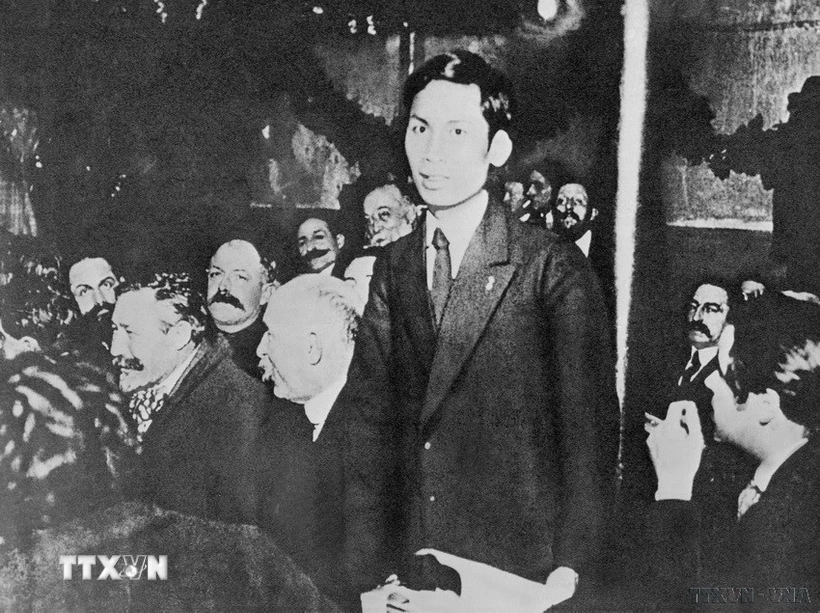
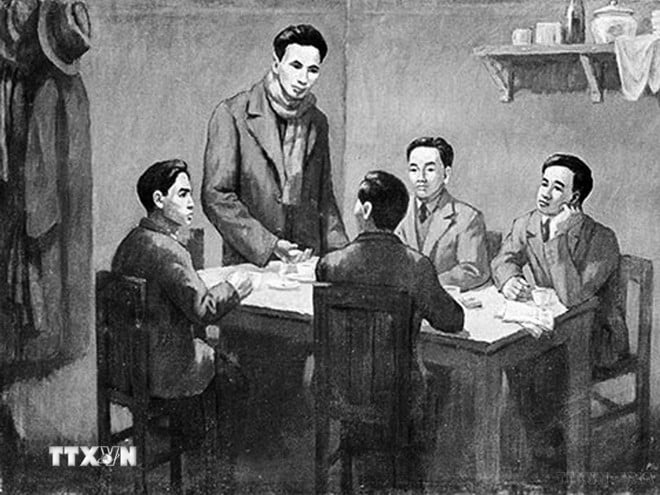



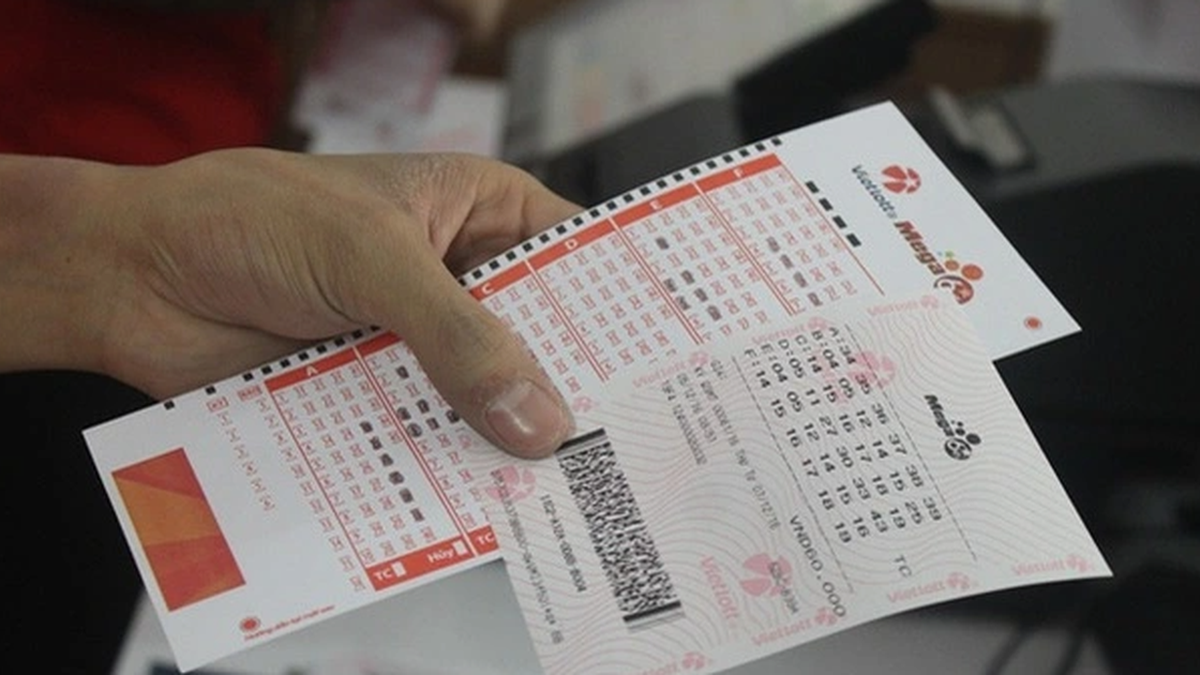













































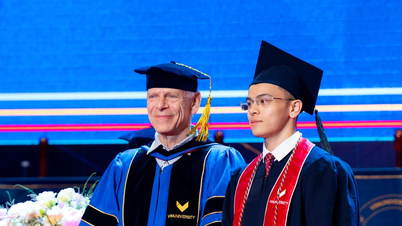










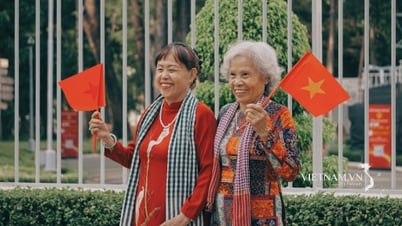













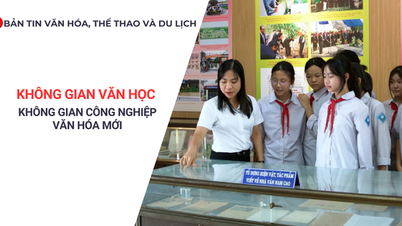

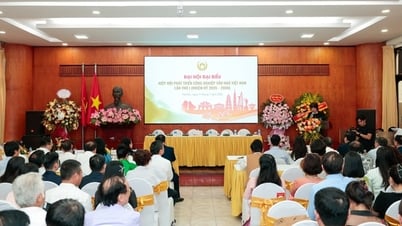





















Comment (0)